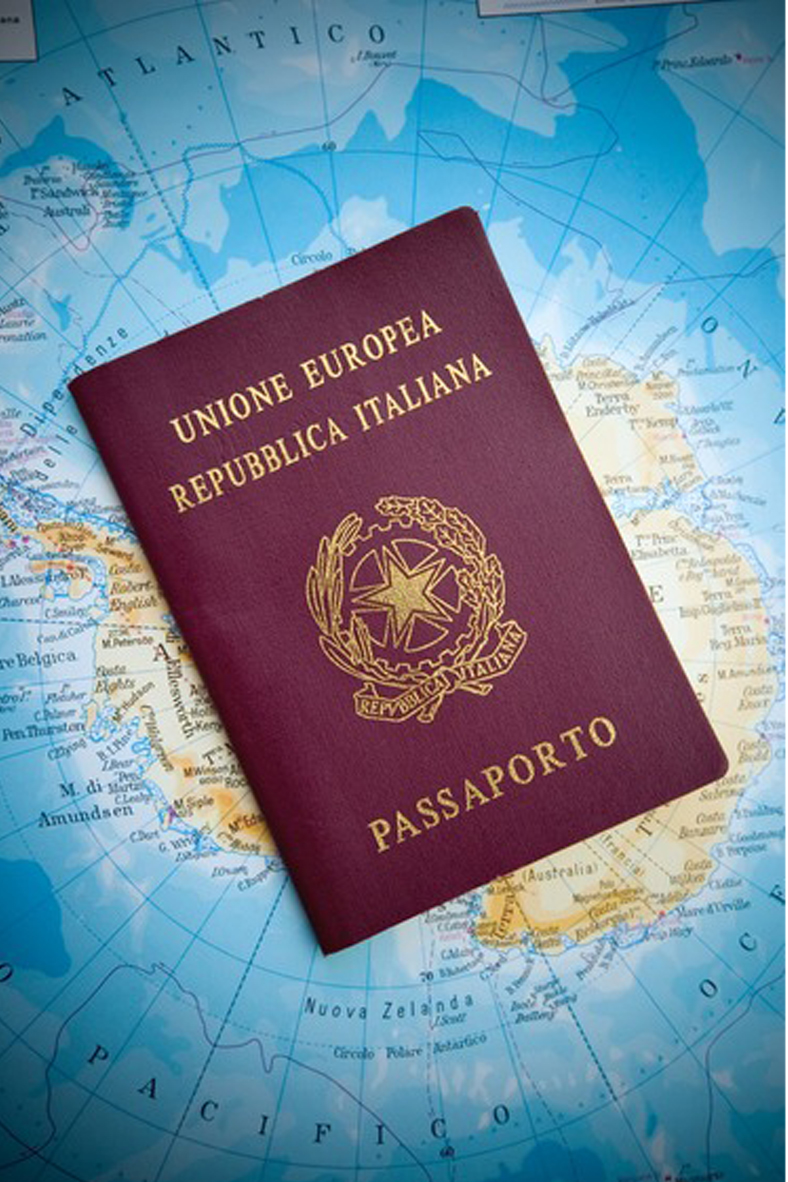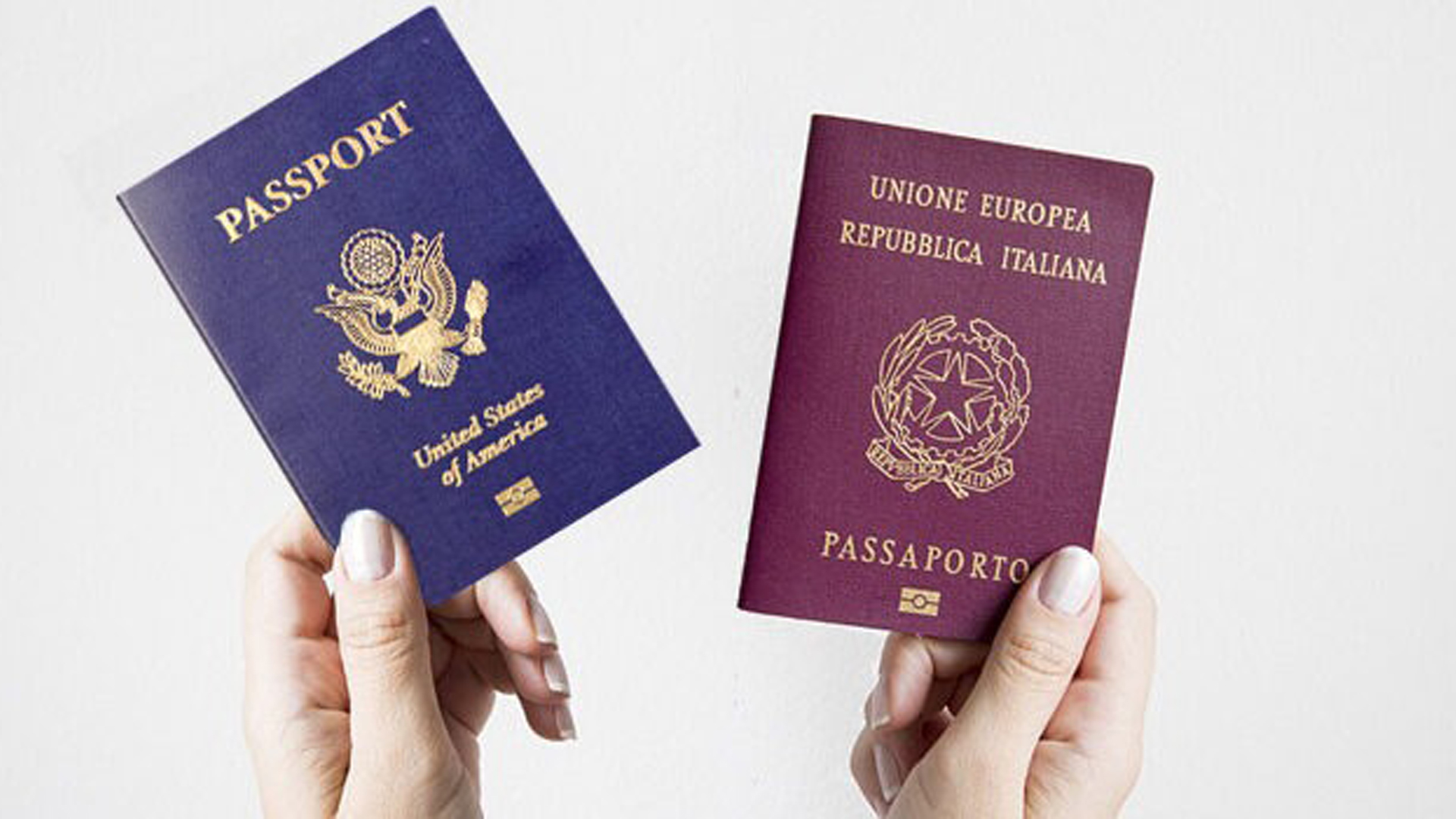Obtaining Italian citizenship can be attractive for many reasons. It could be a claiming of your heritage, a way to feel closer to your ancestors. It may be a way to share something with your Italian spouse or to legally declare the country as your home. Being an Italian citizen opens the door to universal healthcare, affordable university tuition, and the right to work, study, and reside in neighboring EU member states. Not to mention it gives you a claim to the la dolce vita lifestyle, the lackadaisical outlook on life that is envied across the world.
Over the last few months, inquiries for Italian citizenship have been steadily increasing, explains Jennifer Sontag, the owner of Italian Citizenship Concierge, a Sicily-based bespoke agency that helps people obtain Italian citizenship through jure sanguinis, the law of the bloodline. Sontag notes inquiries have increased from several per week to several per day.
"We are talking to younger clients, in their early 30s to mid-40s now. Many of the inquiries are coming from young families who are looking for the opportunity to live in Italy while working remotely, giving them more time to spend with their family and to stretch their budget further," says Sontag. "With the euro to dollar conversion at an all-time low, it's an extra encouragement for people who qualify for citizenship to finally obtain their new life in Italy."
We’ve broken down the three different ways you can Italian citizenship. It is a complex and frustrating process that can take years, but it is worth the headaches if Italian citizenship is something you truly want. Below are the different ways you can go about becoming an Italian citizen and the numerous documents you will need to provide to do so.
“JURE SANGUINIS” (BY THE LAW OF THE BLOODLINE)

You gain Italian citizenship if your ancestors were Italian citizens at the time of your birth. There are two exceptions to this rule; descendants who were naturalized U.S. citizens before June 14, 1912, cannot pass on their citizenship and, if your Italian relative was a woman born prior to January 1st, 1948, citizenship can only be transmitted to children born after that date. Italian women were not granted the right to pass their citizenship onto their children before 1948.
In order to claim Italian citizenship through “jure sanguinis,” you will need to obtain your Italian relative’s vital records. Italian vital records can be obtained by contacting the Italian municipality (comune) in which your ancestor was born or lived. These municipalities keep birth, marriage, and death records in their archives. While claiming citizenship varies case by case, we have provided information for the four most common categories and the specific documents you will need. For clarity, some categories have been grouped together as they share the same requirements.
Category 1: Your father was an Italian citizen at the time of your birth.
Category 2: Your mother was an Italian citizen at the time of your birth, you were born after January 1, 1948, and you never renounced your right to Italian citizenship. Please note all documents need to be submitted in their original form.
Documents Needed:
If your father/mother never became U.S. citizens, you must provide the following documents:
Category 3: Your father was born in a country other than Italy that considered him a citizen by birth, your paternal grandfather was an Italian citizen at the time of your father’s birth and your father did not renounce his Italian citizenship before your birth.
Category 4: Your mother was born in a country other than Italy which considered her a citizen by birth, your maternal grandfather was an Italian citizen at the time of your mother’s birth, you were born after January 1, 1948, and your mother did not renounce her Italian citizenship before your birth. If your Italian citizenship descends from your great-grandparents, you must submit the following documents relating to your great-grandparents.
In addition to documents for Categories 1 and 2, you will also need the following:
“JURE MATRIMONII” ( BY LAW OF MARRIAGE)
You gain Italian citizenship through marriage to an Italian citizen. The non-Italian spouse may apply for Italian citizenship after two years of marriage if the couple lives in Italy, or after three years of marriage if the couple lives abroad. The time frames are cut in half if children are born to or adopted by the couple. Before applying for citizenship, the couple’s marriage must be registered in an Italian municipality.
The following documents are needed to secure Italian citizenship through marriage to an Italian citizen:
Residency and Naturalization

The trickiest way to obtain Italian citizenship is through residency and naturalization. The following can apply for Italian citizenship through residency. All citizens residing in Italy must legally live in the country, receive income and pay taxes (if applicable.)
Documents needed to prove residency and acquire citizenship through naturalization:
Asia London Palomba
Asia London Palomba is a trilingual freelance journalist from Rome, Italy. In the past, her work on culture, travel, and history has been published in The Boston Globe, Atlas Obscura, The Christian Science Monitor, and Grub Street, New York Magazine's food section. In her free time, Asia enjoys traveling home to Italy to spend time with family and friends, drinking Hugo Spritzes, and making her nonna's homemade cavatelli.


